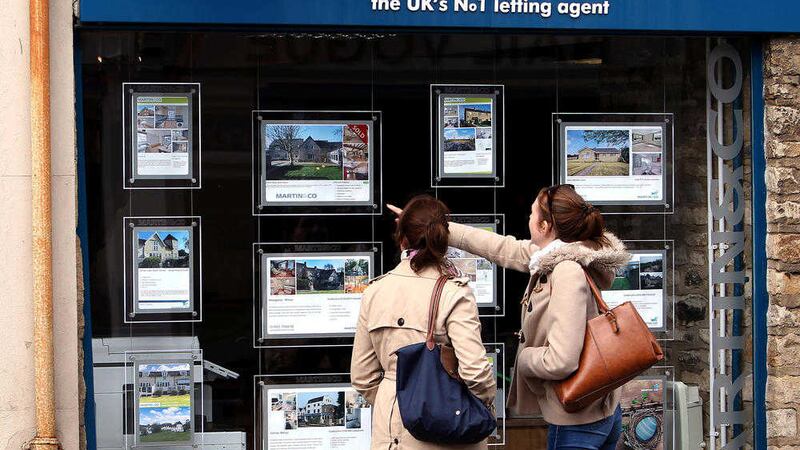THE number of mortgage approvals made to home buyers fell to its lowest level in a year-and-a-half in July, in signs that the vote to leave the EU had a cooling effect on the housing market.
Some 60,912 mortgages with a total value of £10.4 billion were approved for house purchase in July, Bank of England figures showed, marking the lowest monthly total since January 2015.
The growth in non-mortgage borrowing by consumers was also weaker in July than it has been in recent months, suggesting some borrowers may be behaving more cautiously.
The bank's figures showed consumer credit increased by £1.2bn in July, compared with an average of £1.6bn over the previous six months.
Within consumer credit, credit card lending increased by £479 million in July, down from £579m in June. Other types of loans, including personal loans and overdrafts, increased by £702m, reining back sharply from a £1.3bn increase in June.
Meanwhile, lending to non-financial businesses increased by £2.2bn in July, compared with an average monthly increase of £1.9bn over the previous six months.
Howard Archer, chief UK and European economist at IHS Global Insight, said that in early 2016, the housing market had been buoyed by buy-to-let investors rushing to complete property purchases ahead of a stamp duty hike for this sector, which came into force on April 1.
"It is also highly possible that mortgage activity was hit in July by heightened uncertainty following June's vote for Brexit," he said.
"July's marked slowdown in mortgage approvals fuels our belief that house prices could ease back by around 3 per cent over the latter months of 2016 and there could well be a further 5 per cent drop in 2017.
"We believe housing market activity is likely to be limited over the coming months and prices will weaken as heightened uncertainty following the UK's vote to leave the EU weighs down on consumer confidence and willingness to engage in major transactions, and also hampers economic activity."
Mr Archer said that while credit card borrowing held up "relatively well" in July, the much weaker growth in personal loan and overdraft borrowing could be a significant sign that consumers may be looking to cut back their borrowing due to increased uncertainties following the Brexit vote.
The £702m increase was the weakest seen since February 2015.
He warned of the impact of inflation and the weakened pound on consumers' wallets, adding: "We suspect that the fundamentals for consumers will become less favourable over the coming months with purchasing power likely diminishing and the labour market softening.
"On the one hand, this may make people more cautious over borrowing, but... it may increase the need for some people to borrow."
Joanna Elson, chief executive of the Money Advice Trust, the charity which runs National Debtline, said that while the growth rate of consumer credit has slowed, some households may still find themselves in financial difficulty.
"Many household budgets have never really recovered from the financial crisis - and amid less certain economic times, we need to be prepared for an increase in debt problems in the UK in the years ahead," she said.








